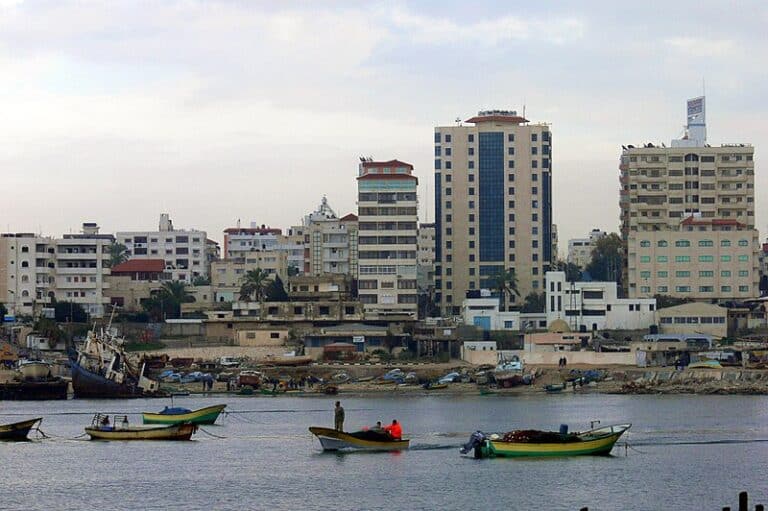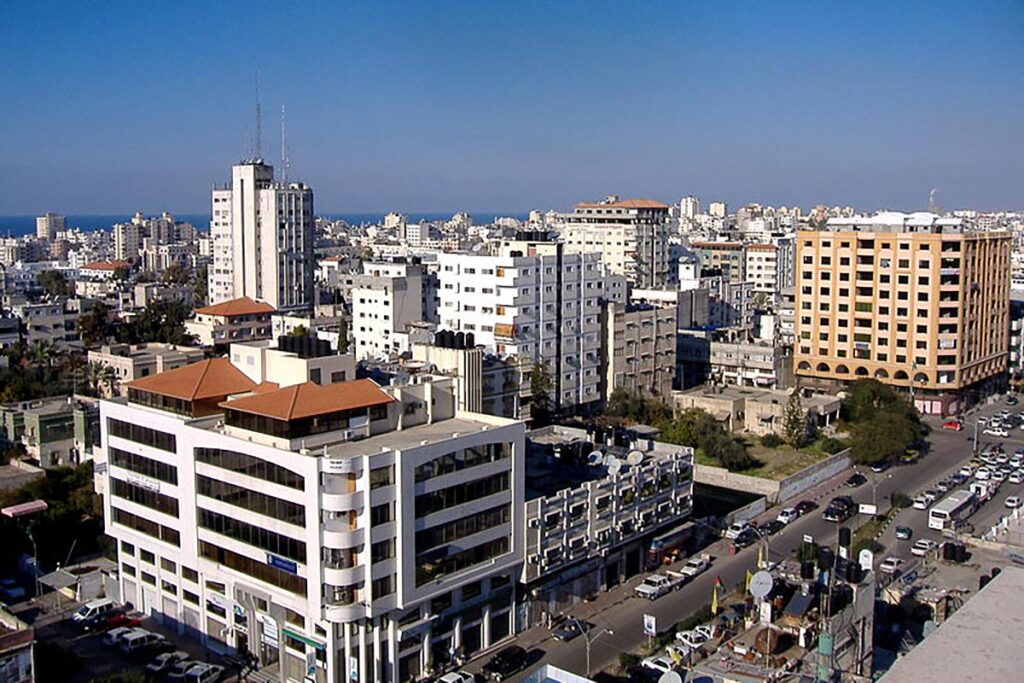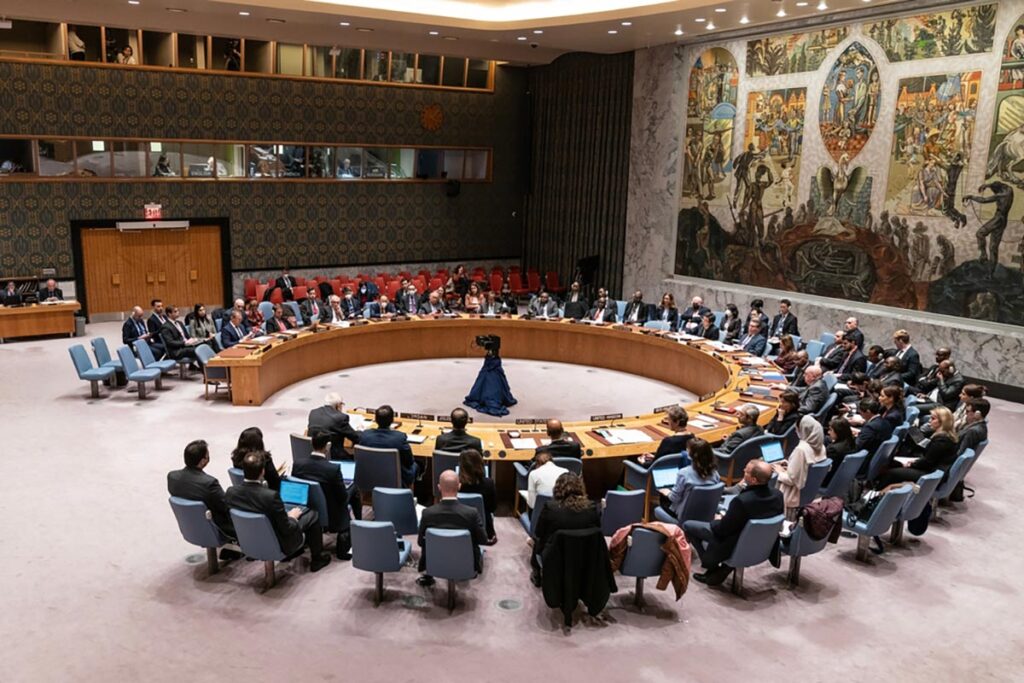
Editor’s note: This article is part 3 of a three-part series on Israel’s presence in the West Bank and Gaza Strip.
Read part 1 on how Israel initially gained control over the West Bank and Gaza, which provides key context for this article, and part 2 on whether Israel is occupying the West Bank.
Many statements and articles about the Israel-Hamas war refer to the West Bank and Gaza Strip as “the occupied Palestinian territories,” but is Israel really occupying the Gaza Strip, which it unilaterally withdrew from in 2005?
Let’s unpack this big question, starting with the definition of “occupation” in international law.
What is occupation?
Under international law, occupation is defined as territory that is “placed under the authority of the hostile army. The occupation extends only to the territory where such authority has been established and can be exercised.”
In its commentary on the Geneva Conventions — a key collection of international laws setting the rules of war — the International Committee of the Red Cross states that a territory is considered occupied when military control is implemented without the host state’s consent. This can occur even if control is implemented without violence and only through a show of force.
Occupying powers are subject to several restrictions and responsibilities under international law. This includes prohibitions against forcibly transferring their own civilian population into the occupied territory, as well as forcibly relocating people from within the occupied territory to other areas.
They are also obligated to maintain public order and safety and ensure that civilians’ basic necessities are met, allowing them to lead their lives as normally as possible under the circumstances.
Is Israel occupying the Gaza Strip?

In 2005, Israel unilaterally withdrew military forces and Israeli civilians from the entire Gaza Strip. This significant move marked the end of Israel’s direct control over the area.
Following this withdrawal, Israel and Egypt have maintained control over Gaza’s borders, airspace, and maritime borders.
This control is primarily driven by security concerns, focusing on preventing arms smuggling into Gaza and regulating the entry of goods that could potentially be used for military purposes.
Israel also provides or facilitates the provision of essential utilities such as electricity and water to Gaza, as Hamas has prioritized the construction of tunnels and military infrastructure over the development of civilian infrastructure.
Much of the humanitarian aid reaching Gaza up until October 7 was also channeled through border crossings between Israel and Gaza. In recent comments, a Hamas leader said that the U.N., not Hamas, should be responsible for protecting the residents of Gaza.
In a 2008 case, Israel’s Supreme Court acknowledged the change in Israel’s role in Gaza following the disengagement. The court stated that “Israel no longer has effective control over what happens in the Gaza Strip.”
The court clarified that Israel does not bear general responsibility for the welfare of Gaza’s residents nor the civilian administration of the area.
In 2008, Israel’s Supreme Court acknowledged the change in Israel’s role in Gaza following the disengagement, stating, “Israel no longer has effective control over what happens in the Gaza Strip.”
However, it recognized Israel’s obligation under international law to allow the passage of essential humanitarian goods to Gaza and to avoid intentional harm to humanitarian facilities.
Contrasting with this view, a 2009 U.N. fact-finding mission argued that Israel still exercises “effective control” over the Gaza Strip and therefore remains an occupying power.
The mission argued that Israel still controls most of the borders and airspace of the Strip, asserting that Israeli policies significantly affect the daily lives of Gaza residents.
However, this perspective has been critiqued for not acknowledging the extent of Israel’s 2005 disengagement.
The U.N. has a long track record of bias against Israel, passing dozens of resolutions against Israel annually while adopting little or no resolutions against systematic human rights abusers.
The U.N. Human Rights Council even has a unique standing agenda item specifically targeting Israel, a distinction not applied to any other country.

Additionally, the 2009 mission’s report did not address Egypt’s role in controlling conditions in the Gaza Strip, including its strict regulation of the Rafah Crossing, which connects Gaza and Egypt. This omission led to criticisms of a one-sided assessment of the situation in Gaza.
Egypt has kept strict control of its border with Gaza, partially due to concerns that Palestinians would attempt to flee the Strip to the Sinai Peninsula.
Egypt is also wary of Hamas, which originated as an offshoot of the Muslim Brotherhood, which Egypt designated as a terrorist group following the overthrow of President Mohamed Morsi, a Muslim Brotherhood member, in 2013.
Conclusion
Israel’s unilateral disengagement in 2005, which included the withdrawal of military forces and Israeli civilians, ended its direct control over the Gaza Strip.
Presently, Israel, along with Egypt, maintains control over Gaza’s borders and airspace. This control is largely motivated by security concerns, primarily to prevent arms smuggling and regulate the entry of goods. This control does not constitute an “occupation,” as Israel does not govern or administer the Gaza Strip.
Israel also continues to provide or facilitate essential utilities like electricity and water to Gaza. This support is crucial, especially as the Hamas administration prioritizes military infrastructure over civilian needs.
Read more: Is Israel occupying the West Bank?
Originally Published Dec 6, 2023 06:41PM EST
